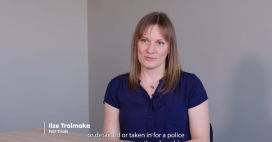Police interviews often happen behind closed doors in daunting, coercive environments. Audio-visual recoding of police interviews can help to sure that procedural safeguards are respected in police custody, including that information on rights and quality interpretation were provided, and that the person was not subject to coercion or ill-treatment.
On its own, audio-visual recording is not going to eliminate abuses in police custody. However, alongside other crucial measures, such as the presence of a lawyer, it can help to reduce human rights violations.
Despite this potential, there is no consistent practice when it comes to audio-visual recording of police interviews in the EU. In some countries, like Croatia and Ireland, there are laws stating that police interviews should be recorded.
This video was developed as part of the EU project ´From law to practice: Strengthening procedural rights in police custody (ProRPC)’ led by the LBI-GMR, in cooperation with APADOR-CH, Fair Trials, the Irish Council for Civil Liberties, and Rights International Spain. You can access a factsheet on this topic by the Irish Council of Civil Liberties here.


